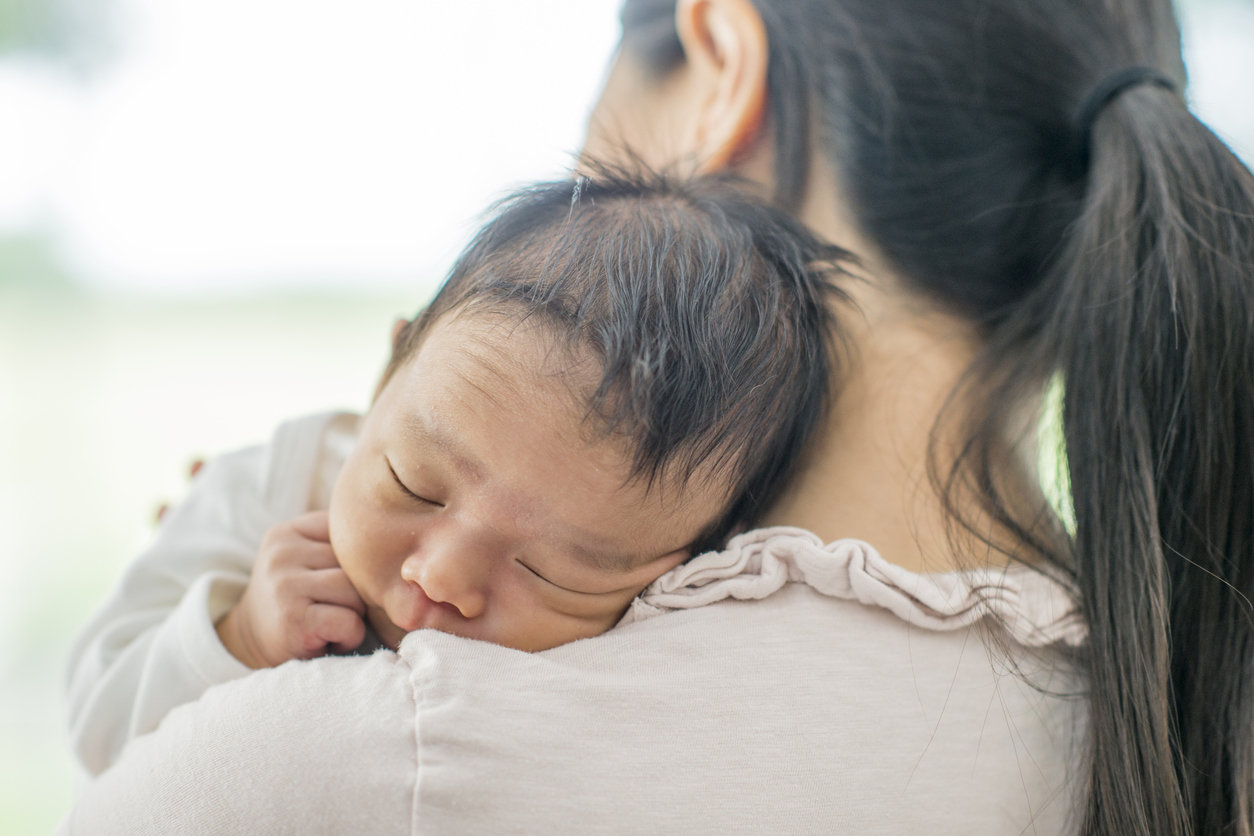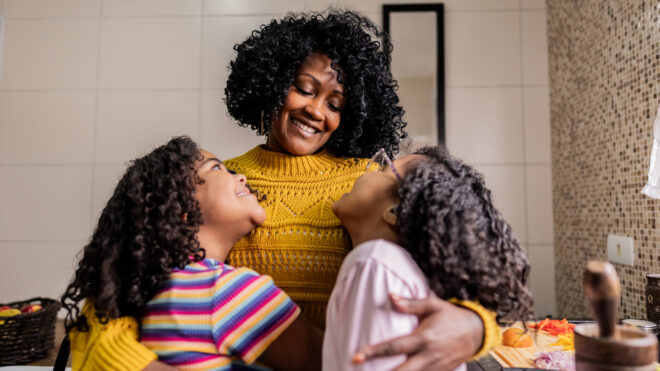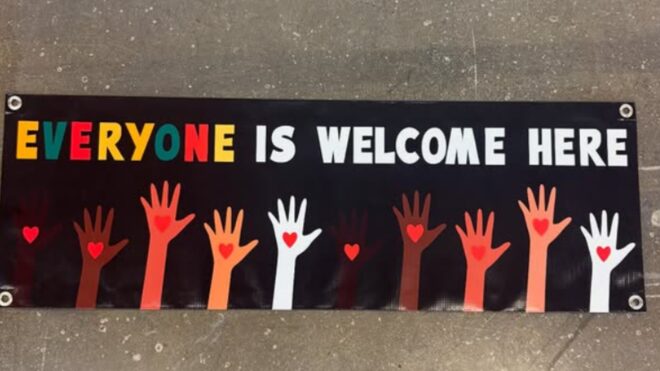
There are so many expectations placed on new mothers and what it's "supposed" to feel like after you give birth. The truth is that sometimes things don't click right away and there's no shame if that maternal instinct doesn't instantly kick in. Unfortunately, many new moms are shamed into thinking they have a problem if that happens, and that's the issue that one Letter Writer (LW) faced. After giving birth, the anonymous woman feared that she wasn't bonding with her newborn daughter and sought out advice with the Care and Feeding advice column.
The mom explained that she had her baby a month ago, but her experience so far hasn't exactly been what she expected.

Despite everything she's read about new motherhood, it's not the wonderful, magical experience she thought it was going to be. Instead, she wrote, "her birth turned out to be almost anticlimactic and kind of surreal."
One minute she was pushing, and the next she was a mom.
She thought all of those big feelings she was supposed to have for her newborn would come once she got home from the hospital, "but still I feel nothing big."
"I mean, my daughter is cute and she's starting to be awake more and look around, which is fun, but I haven’t had a magical 'I'm a mother!' moment," she wrote.
Sometimes she feels like she's not doing enough for her daughter.
And even when she does spend time with her daughter, she worries that it doesn't feel like what it's "supposed" to feel like.
"I'll usually read a book while nursing instead of gazing lovingly into her eyes," she explained. "I'll talk to her and read to her other times when she's awake, though, and I'm generally enjoying having her in my life."
Isn't she supposed to be "absorbed" by motherhood? she wondered.
She's read that some woman are so taken with motherhood that they "forget about their husbands, hobbies — everything."
Truth be told, the LW still likes spending time with her husband and wishes she had more time for her personal hobbies "and kind of needs to keep up on bills and other things, even with a new baby," she added.
The truth is that she's never been a "baby" person.
"I always felt kind of uncomfortable when people asked if I wanted to hold theirs," she added. "Because of that, I've been impressed with how quickly I got used to holding and caring for my daughter, which maybe sounds silly, but I was relieved and glad."
She believes that the problem is that she was always "afraid" of pregnancy.
"My mom had a lot of miscarriages and infertility issues, so my first trimester of pregnancy was stressful because I was so worried about losing the baby, and I was a little afraid to let myself start looking forward too much in case something happened," she explained.
She also had a brother who died from a birth defect when he was less than 2 weeks old. So even though her pregnancy mostly went smoothly ("until the end of it, when I had problems with blood pressure and had to be unexpectedly induced") she still feels "guilty" that things "went so smoothly for me when it was so hard for my mom and for other people I know."
She says that she doesn't believe she has postpartum depression -- but she can't explain what she's feeling.
She can still "laugh at things, I feel fine, and I hate the thought of her getting hurt and wouldn't dream of doing anything to her myself," the LW explained.
But is it normal not to feel an "overwhelming rush of love" for her daughter?
"I also never had a huge 'This is the one' moment with my husband, even though I have no doubts now about my love for him," she added. "So maybe this is a similar thing. Still, I feel like I'm missing out on something."
"Do I love my daughter enough?" she asked.
People chimed in to say that her feelings were just as normal as what she's "supposed" to feel.
"I instantly loved my son, not with a rush of joy or anything, just an instant level of care and concern for him," one woman wrote. "I think that's all you really need. I thought it was boring in the beginning too, it took a few months before he could really smile or interact with anything or anyone, and then it got to be a lot more fun."
"I currently have an 8-month old and I also never really get lost staring at her or forgot my husband or my hobbies," someone else commented. "We're bonded just fine. A lot of the baby — caring is tedious and boring — I do it despite that because I love her, there is no need to pretend I suddenly like changing stinky diapers or being woken up at 3 a.m. (though she is *less* annoying and much more funny than other babies, because: love)."
Another mom also offered her perspective:
"When I first had my son, I had the same worries that I wasn't fit to be a mother because [gasp] I was not enjoying this. I had a difficult induction and labor, followed by a difficult time nursing, etc. I remember driving him home from a doctor appointment and thinking to myself, 'we should have adopted an older child. This is too hard. I can't do this.' I remember thinking that it was wholly unfair that I was expected to put my body through absolute hell and then 48 hours later, take care of the neediest sack of potatoes in existence, while still bleeding and exhausted from labor. The first month sucked.
Honestly, I think I didn't start to feel that love and connection to my son until he was significantly older — maybe four to six months," she continued. "Until then, while I actively cared for him, worried about him, and wanted to be around him, I didn't feel that sense of love. When he started to respond to me differently, clearly acknowledge me, smile, coo, etc. that is when I started to feel the 'heart-swelling' sense of motherhood. Now, my son is 2.5 years old and is the absolute joy of my life.
Give yourself some time. You love your kid, even though she's hard to love right now."
Columnist Michelle Herman agreed: There is no one way for motherhood to feel.

In her response to the LW, she explained that people experience love differently "because we aren’t all exactly the same."
"There's a lot of pressure in our culture around how to feel — not just about marriage or about motherhood, but about our parents and siblings … and about grief and anger and ambition and success and pretty much everything human beings have feelings about," she continued.
And if we don't feel the way we are told we're supposed to feel, we can feel like we're "missing out" she explained.
"But as you make very clear when you talk about all the things that are in the mix here — your mother's history, your own child's birth story, and everything else you mention — feelings are more complicated and nuanced than the version of what one is supposed to feel allows for," she continued. "I don't think you're missing out, and I don't think she is either. I send my very best wishes to you both."




